As businesses increasingly rely on computer programs and web applications to drive their operations, having a proficient technology stack consulting partner can significantly enhance the efficiency and effectiveness of the software development process. Important items to consider when assessing a consulting partner include the consultant’s approach to software development teams, version control systems, programming languages, code editors, testing tools, and project management tools.
Understanding the Software Development Process
Before embarking on the search for a technology stack consulting partner, it is essential to have a solid understanding of the software development process.Familiarity with the various stages involved, such as requirements gathering, design, development, testing, deployment, and maintenance, will serve any business well as it moves forward. By understanding the process, businesses can effectively communicate their needs and expectations to potential consulting partners.
Expertise in Diverse Computer Programs and Software Development Teams
An ideal technology stack consulting partner should have expertise in a wide range of computer programs and tools for software development. This includes proficiency in popular programming languages, frameworks, libraries, and databases. A partner with diverse experience can provide valuable insights and guidance in selecting the most suitable technologies for web applications important to various types of businesses in varying industries.
Additionally, consider the size and composition of their software development teams. A partner with a skilled and experienced team can contribute significantly to the success of a project. Assess their track record, expertise, and ability to work collaboratively to ensure they can meet specific requirements of the business.
Version Control System and Source Code Management
Efficient collaboration and version control are essential components of successful software development projects. A business should ensure its technology stack consulting partner is well-versed in version control systems such as Git, Subversion, or Mercurial. They should be capable of setting up and managing repositories, enabling multiple developers to work simultaneously while tracking changes and merging code effectively.
Moreover, inquire about their source code management practices. A reliable partner will emphasize code quality, documentation, and maintainability, ensuring that the source code is well-organized and easy to understand.
Utilization of Low-Code Platforms and Programming Languages
Consider whether a potential technology stack consulting partner embraces low-code platforms, such as Zoho Creator, which can accelerate development by leveraging visual interfaces and pre-built components. Low-code platforms can be valuable for rapid prototyping, iterative development, and simplifying complex workflows.
Furthermore, evaluate a partner’s proficiency in various programming languages based on the specific requirements of the project. Whether it’s Python, JavaScript, Java, C#, or any other language, a consulting partner should have deep knowledge and experience in the languages that align with the project goals.
Code Editors and Code Completion Capabilities
Efficient code editing and code completion features can significantly enhance a developer’s productivity. Inquire about the code editors used by the technology stack consulting partner. Popular options include Visual Studio Code, Atom, Sublime Text, and IntelliJ IDEA. The choice of code editor should depend on the preferences and familiarity of the development team, ensuring they can work efficiently and comfortably.
Testing Tools and Quality Assurance
Thorough testing and quality assurance are critical for delivering reliable and robust software applications. Ensure that potential consulting partners have expertise in utilizing testing frameworks and tools such as Selenium, JUnit, PyTest, or Mocha. A strong emphasis on automated testing can reduce bugs, improve code stability, and enhance the overall quality of the resulting application.
Code Review and Best Practices
Code reviews play a vital role in identifying and rectifying potential issues early in the development process. A reliable technology stack consulting partner should emphasize code review as a standard practice. They should have experienced developers who can provide constructive feedback, ensure adherence to coding standards, and encourage best practices to maintain a high level of code quality.
Project Management Tools and Communication
Efficient project management is essential for successful software development. Evaluate the technology stack consulting partner’s project management methodologies and tools. Tools like Jira, Trello, Asana, or Basecamp can facilitate effective collaboration, task tracking, and communication. A partner with a transparent and well-defined project management approach can help ensure smooth coordination and timely delivery of your software application.
Real-Time Collaboration and Communication
In today’s fast-paced business environment, real-time collaboration and communication are crucial for efficient development. Look for a technology stack consulting partner that utilizes modern communication tools such as Slack, Microsoft Teams, or Zoom. These platforms enable seamless communication, quick decision-making, and efficient problem-solving, even when team members are geographically dispersed.
Learning Curve and Knowledge Transfer
Consider the learning curve associated with the technologies and tools proposed by the consulting partner. Ensure that the technology stack is not overly complex, allowing internal teams to understand and maintain the software application effectively. Additionally, inquire about the knowledge transfer process provided by the partner to ensure that teams receive adequate training and support to work with the chosen technology stack.
Tips for Choosing the Right Technology Stack Consulting Partner
Here are some tips for choosing the right partner for technology stack consulting:
- Do the research: Before looking for a partner, it is important to do solid research. There are many different technology stack consulting partners out there, so it is important to find one that is a good fit for the needs of each particular business.
- Define the business needs: After researching, businesses must define their needs. What are the specific requirements of the specific application? What are the skills, strengths and weaknesses of the business’ own internal team? What is the project budget?
- Get recommendations: Ask colleagues, friends, and business associates for recommendations. They may know of a technology stack consulting partner that they would recommend.
- Interview potential partners: Take the final list of potential partners and interview them. This will provide a chance to learn more about their services and see if they are a good fit.
- Get everything in writing: After selecting a partner, it is important to get everything in writing. This will help to avoid any misunderstandings down the road.
Key Factors When Selecting a Technology Stack Consulting Partner
Here are some of the key factors to consider when choosing a technology stack consulting partner:
- Experience: The partner should have experience in the specific technologies that a business is using or plans to use.
- Expertise: The partner should have the expertise to help choose the right technologies and implement them effectively.
- Communication: The partner should be able to communicate effectively with business stakeholders and internal teams.
- Support: The partner should be able to provide support for the application after it is deployed. Find a partner that can help build a high-quality, scalable, and secure application; and who will be there after deployment.
The Technology Stack Consulting Process
The technology stack consulting process typically follows these steps:
- Initial consultation: The partner will meet with business stakeholders to discuss needs and goals.
- Needs assessment: The partner will assess the current technology stack and identify any gaps.
- Recommendation: The partner will recommend a set of technologies that meet the needs of the business.
- Implementation: The partner will help implement the new technology stack.
- Support: The partner will provide support for the application after it is deployed.
The length of the technology stack consulting process will vary depending on the complexity of the project. However, it typically takes a few weeks to a few months to complete the entire process.
The Benefits of Working with a Technology Stack Consulting Partner
There are many benefits to working with a technology stack consulting partner. These benefits include:
- Expertise: The partner has the expertise to help choose the right technologies and implement them effectively.
- Time savings: The partner can help save time by doing the research and implementation work for the business.
- Peace of mind: Having a partner who can help if a business should run into any problems can provide peace of mind.
The Traits of a Solid Technology Stack Consulting Expert
A great technology stack consulting expert possesses a combination of technical expertise, industry knowledge, and interpersonal skills. Here are some key traits that define a great technology stack consulting expert:
- Deep Technical Knowledge: A technology stack consulting expert should have in-depth knowledge and expertise in a wide range of technologies, programming languages, frameworks, and tools. They should stay up-to-date with the latest trends and advancements in the field of software development to provide valuable insights and recommendations.
- Analytical and Problem-Solving Skills: Effective problem-solving skills are crucial for a technology stack consulting expert. They should be able to analyze complex requirements and business objectives and provide tailored solutions that align with the client’s needs. They should have a systematic and logical approach to problem-solving, considering various factors such as scalability, performance, security, and maintainability.
- Strong Communication Skills: Communication is a vital aspect of technology stack consulting. A great consultant should be able to clearly articulate complex technical concepts to non-technical stakeholders. They should actively listen to client requirements, ask clarifying questions, and effectively communicate their recommendations and solutions. Excellent communication skills help build trust, foster collaboration, and ensure that both parties are aligned throughout the consulting process.
- Business Acumen: A technology stack consulting expert should possess a solid understanding of business operations and objectives. They should be able to align technological recommendations with the client’s strategic goals, considering factors such as budget, time constraints, market trends, and competitive landscape. A consultant with strong business acumen can provide valuable insights on how technology can drive business growth and efficiency.
- Adaptability and Continuous Learning: The technology landscape is constantly evolving, and a great technology stack consulting expert embraces change and adapts to new technologies and methodologies. They should be open to learning and continuously updating their knowledge to stay ahead of the curve. Their ability to quickly grasp new technologies and assess their suitability for specific projects is crucial for providing up-to-date and effective recommendations.
- Collaboration and Teamwork: Technology stack consulting often involves working closely with various stakeholders, including developers, project managers, business analysts, and clients. A great consultant should be a team player, capable of collaborating effectively with diverse teams. They should be able to build strong relationships, foster a positive working environment, and facilitate effective communication and coordination between different parties involved in the project.
- Client-Centric Approach: A great technology stack consulting expert always puts the client’s needs and goals first. They actively listen to client requirements, seek to understand their pain points, and provide solutions that address their specific challenges. They should have a customer-centric mindset, ensuring that the proposed technology stack aligns with the client’s vision, budget, and long-term objectives.
- Project Management Skills: While not always the primary role of a technology stack consulting expert, possessing project management skills can be an added advantage. They should have a good understanding of project management methodologies, tools, and best practices. This enables them to provide guidance on project planning, resource allocation, risk management, and monitoring progress, ensuring the successful execution of technology stack implementations.
Choosing the right partner for technology stack consulting is a crucial decision that can significantly impact the success of software development projects. A little time up front researching partners will well serve any business in the long run.










